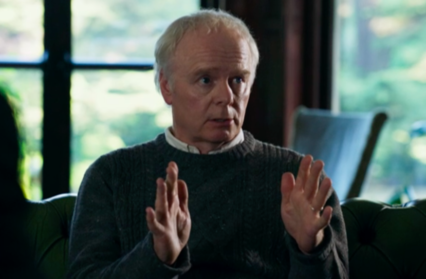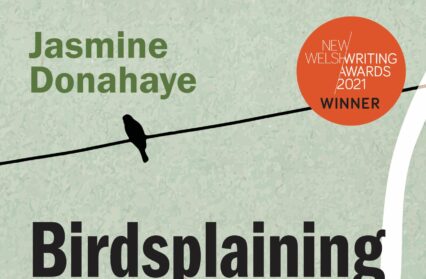Matt Taylor reviews The Trick, a climate change-based drama penned by Owen Sheers and streaming ahead of COP26 in Glasgow.
The fact-based climate change thriller is a rare beast. Most films we see using climate change as a plot device tend to be apocalypse thrillers starring Gerard Butler. It isn’t all that often we see one rooted in truth – and based on BBC’s The Trick, it’s easy to see why. Based on the Climategate scandal of 2009 (in which emails and data from the Climate Research Unit were stolen by climate change denying hackers), and boasting a stellar cast including Jason Watkins, Victoria Hamilton, Jerome Flynn, and George MacKay, The Trick should, in theory, be at least a decent way to spend 90 minutes. But it isn’t. In fact, The Trick commits the biggest cardinal sin of any TV movie: it’s unbearably dull.
The film follows Watkins as Philip Jones, head of the Climate Research Unit (CRU), whose emails and databases were hacked just weeks before the COP15 climate conference in 2009 – data that was to prove humanity’s impact on global warming. The release of the data and select emails cast doubt on the CRU’s findings, and is estimated to have set back the global response to the climate crisis by 8-10 years. The fact that I’ve told you in two sentences everything the film tells you in 90 minutes should give away all you need to know about its efficiency.
All of The Trick’s problems come back to its script. Nearly every line of dialogue is geared towards exposition while simultaneously revealing next to nothing about the characters we’re supposed to be able to engage with. As a result of that, every character feels strangely inhuman and uninteresting – and given that the characters are the focal points of the entire film, this doesn’t exactly do wonders for it.
Its narrative structure is also odd in a way that puts the viewer off, rather than pulling them in. The film opens with a scene of Phil on the beach with his wife and his young granddaughter, and, to its credit, it works because of Watkins: his physicality is essential here for showing us how badly Phil is affected by the hack later in the film. After this, the film jumps to three months later as Phil meets with some lawyers as they try and figure out what happened. From here, we go back three months, and then forward two months. Strange, but not unreasonably difficult to follow. The film then spends much of the rest of its time in prepping Phil for the Select Committee hearing, which the viewer begins to anticipate. It’s clearly the narrative’s focal point, and the film treats it as such – but then we don’t see it. We see the opening remarks, and then we cut to a completely different scene and see nothing else of it as we’re left wondering what the point of it all was.
Speaking of pointless, the subplot of the police investigation into the hack is dropped more suddenly than Y: The Last Man was by Disney. We’re introduced to the investigating team with a horrible scene packed with more jargon than is appropriate for something like this. We visit them another two or three times, none of which are remotely important, as they just disappear before the end of the film and aren’t mentioned again. It’s such a strange addition, and means that a large portion of the film’s runtime is wasted – making it duller than it already was.
To the film’s credit, the acting is solid across the board. Watkins is particularly great, and he’s well backed-up by Hamilton, Flynn, and MacKay – though it should be a criminal offence to cast Jerome Flynn and not have him drop a single f-bomb. Thanks to them there are flickers of life at intermittent periods throughout the film – a scene where Phil is asked by his lawyers to explain the true meaning of his emails is particularly good, and one of the few moments in the film that does any justice to its cast. But as good as the cast are, none of them can save a script this bad.
It’s the writing which means that no lessons are learned by the end of the film – its ultimate message seems to be “climate change is real, climate deniers are bad.” Thanks, guys. Very helpful. There’s an attempt to tell the audience how badly the hack and resultant shenanigans affected Phil, but because this is achieved through a horrific scene in which Phil’s wife speaks directly to the viewer (yes, really), it winds up achieving nothing.
The whole film feels oddly misjudged, which is strange given its timing – its airing not two weeks before COP26 in Glasgow cannot be an accident. Director Pip Broughton and writer Owen Sheers clearly want people to pay attention to the climate crisis, and, to their credit, they’re right. This is something that will undoubtedly affect our livelihoods in the next decade or two, and the setbacks caused by Climategate have certainly made that worse. But the thing is, when the film you’re trying to use to educate people is this boring, no one’s going to bother paying enough attention. Perhaps if Gerard Butler had been on board, this would have been a tad more successful.
The Trick is available now on BBC iPlayer.












